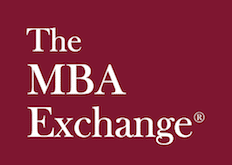
CFA vs MBA, which one should you choose?
You’re not alone if you are stuck at the crossroads of choosing between an MBA and a CFA.
Every year, thousands of ambitious professionals grapple with this same decision. They wonder, “Should I go for broad business knowledge with an MBA? Or should I delve deep into the finance world with a CFA?”

Choosing to further education by working toward a CFA credential or an MBA is significant. Both are prestigious qualifications that can improve job prospects and salary potential.
Both can open doors to higher-level positions in finance, consulting, or other industries.
So, what gives? How do you make this crucial decision? Ultimately, pursuing a CFA or MBA depends on an individual’s career goals and interests. This comprehensive guide will break down the CFA vs MBA debate, dissecting each program’s pros and cons, career opportunities, and more. By the end, you’ll be better equipped to choose the path that aligns best with your career goals. Let’s dive in!
CFA vs MBA: An Overview
CFA Program
The CFA Program, offered by the CFA Institute, is a globally recognized certification tailored for financial and investment professionals. It’s designed to enhance investment analysis, portfolio management, and asset allocation skills. As a result, the CFA designation is highly sought after in the investment management industry.
MBA Program
An MBA (Master of Business Administration) is a postgraduate degree that business schools offer. The program covers a broad business curriculum, including finance, marketing, operations, and leadership. MBA graduates often pursue careers in management roles, investment banking, or corporate finance.
Similarities Between CFA and MBA
While the CFA and MBA are distinct in their focus and career paths, they do share some commonalities. Let’s delve into some of the key similarities between these two prestigious credentials:
Focus on Finance
Both the CFA program and the MBA program, particularly an MBA with a concentration in finance, provide a strong grounding in financial principles. They cover areas such as financial analysis, corporate finance, and investment management, equipping candidates with a robust understanding of the financial landscape.
Professional Development
Both credentials aim to further professional development and are highly regarded in the business and finance world. They provide candidates with valuable skills and knowledge to enhance their job prospects and career progression.
Ethical Standards
Both the CFA program and MBA programs place a high emphasis on professional ethics. In addition, the CFA Institute and business schools alike require candidates to adhere to strict codes of ethics and professional conduct.
Global Recognition
The CFA charter and an MBA degree are both recognized globally. So whether you’re a CFA charterholder or an MBA graduate, you’ll have a respected and recognized credential, which can open up international career opportunities.
Commitment to Excellence
Both the CFA and MBA require a significant commitment of time, effort, and resources. They demand rigorous study and a high level of dedication, demonstrating a candidate’s commitment to professional excellence and continuous learning.
Networking Opportunities
Both provide excellent networking opportunities. Top MBA programs in the US often emphasize group work and have strong alumni networks. At the same time, the CFA Institute hosts events and has local chapters worldwide that enable charterholders to connect with other financial professionals.
While the CFA and MBA differ in many respects, they also share some key similarities. Both are valuable credentials that can enhance your knowledge, boost your career prospects, and help you stand out in the competitive business and finance landscape.
Differences Between CFA and MBA
While the CFA and MBA share some similarities, they differ fundamentally in several aspects. Let’s explore some of these key differences:
Area of Focus
CFA: The CFA program is heavily focused on investment management, including areas like portfolio management, asset allocation, and investment analysis. It’s designed for those who wish to delve deeper into business’s financial and investment aspects.
MBA: The MBA program provides a broad business curriculum. It covers a range of topics, including marketing, operations, leadership, strategy, and more. It’s suitable for those seeking a more generalist business education or branching into various management roles.
Program Structure and Duration
CFA: The CFA program consists of three levels, each culminating in a six-hour exam. Candidates spend an average of 300 hours preparing for each level, and the average candidate takes about four years to complete the program.
MBA: MBA programs typically last two years for full-time students but can be extended for executive or part-time MBA programs. The program usually includes coursework, projects, and internships. In addition, there is the benefit of help from MBA admission consultants if you want to get into one of the top MBA programs.
Cost
CFA: The CFA program can be more cost-effective. The costs are mainly associated with exam registration and study materials. However, there’s an opportunity cost in terms of the time investment required. On average, CFA certification costs less than 10,000 dollars. This includes CFA-level exam fees and the costs for CFA test prep.
MBA: MBA programs can be expensive, with top business schools charging hefty tuition fees. On average, the cost of earning an MBA costs around 60K. If you’re planning on being a full-time student at one of the top MBA schools, this price tag will double. However, many students see it as a long-term investment, considering the potential salary increase and career advancement opportunities.
Learning Mode
CFA: The CFA program is a self-study program. Candidates prepare for the exams on their own, using study materials provided by the CFA Institute and other resources.
MBA: MBA programs involve structured learning in a classroom setting, often with group projects and active engagement with professors and classmates.
Career Paths
CFA: CFA charterholders typically pursue careers in the finance and investment industry, such as portfolio managers, financial analysts, or investment bankers.
MBA: MBA graduates have a wide range of career options across various industries, including roles like general manager, consultant, entrepreneur, or project manager.
The choice between pursuing a CFA charter or an MBA degree should be based on your career goals, learning preferences, and financial considerations. Both credentials offer unique advantages and can pave the way for a rewarding career.
The CFA Exam
The CFA exam is divided into three levels, with each level requiring a deep knowledge of investment principles and financial analysis. The average candidate takes around 300 hours of self-study per level and often spends several years completing all three exams.
Level 1: Investment Tools
Level 1 covers fundamental knowledge, investment tools, and ethical principles. Topics include financial statement analysis, economics, and portfolio management.
Level 2: Asset Valuation
Level 2 applies investment tools and ethical principles to value assets, such as equities, fixed income, and derivatives.
Level 3: Portfolio Management and Wealth Planning
Level 3 emphasizes portfolio management strategies, including asset allocation, risk management, and wealth planning for individual and institutional clients.
The MBA Curriculum
Core Courses
The MBA curriculum typically begins with core finance, accounting, marketing, operations, and leadership courses. These foundational courses provide a solid understanding of business management principles.
Electives and Concentrations
MBA students can choose electives specializing in finance, marketing, or entrepreneurship. Some MBA programs also offer concentrations, allowing students to dive deeper into a specific field, such as investment banking or corporate finance.
Capstone Projects and Internships
MBA programs often require students to complete a capstone project involving applying business concepts to real-world problems. Additionally, internships are common, giving students hands-on experience in their chosen field.
Career Opportunities: CFA vs MBA
CFA Charterholders
CFA charterholders are typically found in investment management roles, where their specialized knowledge and skills are highly valued.
Here are some common career paths for a CFA charterholder:
- Portfolio Managers: Portfolio managers are responsible for making investment decisions and managing investment portfolios on behalf of clients. This role requires a deep understanding of investment principles, portfolio management, and financial analysis, which are all key components of the CFA curriculum.
- Financial Analysts: Financial analysts analyze financial data, monitor economic trends, and provide investment recommendations. These finance roles play a crucial role in guiding investment decisions in both corporate finance and investment banking sectors.
- Investment Bankers: Investment bankers are involved in raising capital for companies, advising on mergers and acquisitions, and performing financial analysis. The knowledge acquired through the CFA program, particularly in corporate finance and financial analysis, is highly relevant in this field.
Remember, the CFA designation can open doors to various other roles in the finance and investment world, and these are just a handful of the many possible career paths. The versatility of the CFA charter is one of its most significant benefits, allowing charterholders to apply their skills in diverse roles across the financial landscape.
MBA Graduates
MBA graduates possess a versatile skill set that opens a wide range of career opportunities in business administration, management roles, and corporate finance. Here are some common career paths for MBA graduates:
- Consultants: Consultants provide advice to organizations to help improve their performance. An MBA degree, with its broad business curriculum, is often seen as a prerequisite for advanced consulting roles.
- Marketing Managers: Marketing managers plan, direct, and coordinate marketing efforts. The comprehensive business management knowledge obtained through an MBA program can be beneficial in this role.
- Entrepreneurs: An MBA graduate can use the skills and knowledge gained during their studies to start their own businesses. The broad business education provided by an MBA program is invaluable to entrepreneurs.
- Project Managers: Project managers are responsible for planning, executing, and overseeing projects within a company to ensure they are completed in a timely manner and within budget. The leadership skills developed in an MBA program can be highly beneficial in this role.
- Investment Bankers: Similar to CFA charterholders, MBA graduates can also pursue careers in investment banking. The MBA finance and business administration knowledge gained from an MBA program is highly relevant in this sector.
- Human Resources Managers: Human Resources (HR) managers plan, direct, and coordinate the administrative functions of an organization. They oversee the recruiting, interviewing, and hiring of new staff, and act as a link between an organization’s management and its employees.
MBA graduates can leverage their broad business knowledge and leadership skills to pursue careers in a wide range of industries. The versatility of an MBA degree allows graduates to adapt to changing business environments and meet various industry demands. Whether you’re interested in finance, marketing, consulting, or entrepreneurship, an MBA degree can provide the necessary skills and knowledge to excel in your chosen field.
CFA vs MBA: Costs and Time Commitment
CFA Program
The CFA Program is generally more affordable than an MBA, with exam fees and study materials totaling around $2,000 to $4,000. However, the self-study nature of the program requires a significant time investment, with candidates typically taking around four years to complete all three exams.
MBA Program
CFA or MBA Salary: Which Is Better?
MBA programs are generally more expensive, with tuition fees ranging from $50,000 to over $150,000 for top business schools. Full-time MBA programs typically last two years, while part-time and executive programs can take three to five years to complete. Additionally, pursuing an MBA often involves opportunity costs, such as lost wages and professional experience while attending school full-time.
CFA Salary
CFAs are revered in the finance and investment industries. With deep knowledge in investment analysis and portfolio management, they often hold high-paying positions. According to the CFA Institute’s most recent compensation survey, the median total compensation for CFA charterholders globally is approximately $180,000 annually. Here’s a breakdown of salaries across various roles:
- Portfolio Managers: $90,000 – $150,000
- Financial Analysts: $55,000 – $90,000
- Investment Banking Analysts: $75,000 – $100,000
Of course, these figures can vary based on experience, location, and the size of the organization.
MBA Salary
MBA graduates, known for their versatile skill set, have the potential to earn substantial salaries across a variety of industries. According to the GMAC, the median starting salary for MBA graduates in the US was about $115,000 in 2020. Here’s a quick look at salaries across various roles:
- Financial Managers: $80,000 – $120,000
- Management Consultants: $80,000 – $150,000
- Investment Bankers: $90,000 – $150,000
As with CFAs, the salaries of MBA graduates can vary based on factors like experience, location, and the size of the employer.
CFA and MBA Salary
For individuals holding both the CFA and MBA credentials, the earning potential expands considerably due to the combination of deep financial knowledge and broad business administration skills.
Assuming a premium of 15%-25% for each salary range mentioned earlier due to the additional qualification, we could expect the following salary ranges:
- Portfolio Managers/Financial Managers: $103,500 – $187,500
- Financial Analysts/Management Consultants: $63,250 – $112,500
- Investment Banking Analysts/Investment Bankers: $86,250 – $187,500
As for the average salary, if we consider a 20% increase on the average of the CFA and MBA average salaries ($147,500), an individual with both credentials might expect an average salary of around $177,000.
CFA vs MBA: Which Is Right for You?
Consider the following factors when deciding between a CFA and an MBA:
- Career Goals: If your primary focus is investment management, the CFA designation may be the better choice. However, if you’re interested in a broader range of business management and leadership roles, an MBA might be more suitable.
- Costs and Time Commitment: The CFA program is generally more affordable but requires significant self-study and dedication. MBA programs are more expensive but offer a structured learning environment and potentially faster career advancement.
- Networking Opportunities: Both the CFA and MBA provide networking opportunities, but the MBA program may offer a more comprehensive experience with access to alumni networks and classmates.
Conclusion
In the end, the decision between a CFA vs MBA depends on your career goals, financial resources, and personal preferences. Both paths offer valuable opportunities for professional development, networking, and career advancement. By carefully considering the factors discussed in this guide, you can make an informed decision that best aligns with your objectives and aspirations.
Frequently Asked Questions
Yes, some professionals choose to pursue both the CFA and MBA to enhance their skill set and marketability. This can be a significant investment in time and money but may yield greater career opportunities.
The difficulty of the CFA and MBA programs depends on your background and aptitude for the respective subjects. The CFA exams are known for their rigor, while the MBA program may be challenging in terms of workload and time management.
Employer preferences depend on the industry and job function. In the investment management industry, the CFA designation is often highly regarded. For broader business management and leadership roles, an MBA may be more desirable.
Yes, many candidates complete the CFA program while working full time. The self-study nature of the program allows candidates to study at their own pace.
An MBA can increase your earning potential and open doors to new career opportunities. However, it’s essential to consider factors like the reputation of the business school, networking opportunities, and the current job market when assessing potential outcomes.
The return on investment for a CFA or MBA depends on your career goals, industry, and location. While the CFA program is generally more affordable, an MBA from a top business school can lead to higher-paying management roles and faster career advancement.
The CFA exam, administered by the CFA Institute, is divided into three levels: Level I, Level II, and Level III. Each level requires a comprehensive understanding of topics like portfolio management, asset management, and financial analysis. The exam is known for its rigorous standards and requires an average of 300 hours of study per level. Passing all three levels is a requirement to earn the CFA charter and become a Chartered Financial Analyst.
Absolutely! There’s no rule that says you can’t have both MBA and CFA credentials. In fact, having both can be beneficial as they complement each other quite well. The MBA course provides a broad understanding of business administration and management principles, while the CFA program offers in-depth knowledge of finance and investment. This combination can make you a very attractive candidate in the finance career landscape.
Earning a CFA charter signifies that you possess a deep understanding of financial and investment principles, particularly in the realm of asset and portfolio management. CFA charterholders often pursue investment careers in asset management, investment banking, and portfolio strategy. They are valued for their skills in financial analysis and their commitment to upholding the high ethical standards set by the CFA Institute.
An MBA from a top business school can offer significant advantages. It’s not just about the knowledge you gain but also the network you build. The MBA experience allows you to form connections with classmates, faculty, and alumni, which can be incredibly beneficial for your career down the line. Moreover, employers often regard an MBA from a reputable business school as a sign of competent leadership and management skills.
Becoming a Chartered Financial Analyst (CFA) and pursuing an MBA largely depends on your career goals and personal preferences. For example, the CFA program could be a good fit if you’re passionate about the nitty-gritty of finance, asset management, and investment. On the other hand, if you’re interested in a broad understanding of business and aspire to leadership or management roles in various industries, an MBA might be more suitable. You may also consider factors like cost, study mode (self-study vs. classroom learning), and duration of the program. In some cases, pursuing both could be an option to consider.
Bryce Welker is an active speaker, blogger, and regular contributor to Forbes, Inc.com, and Business.com where he shares his knowledge to help others boost their careers. Bryce is the founder of more than 20 test prep websites that help students and professionals pass their certification exams.












